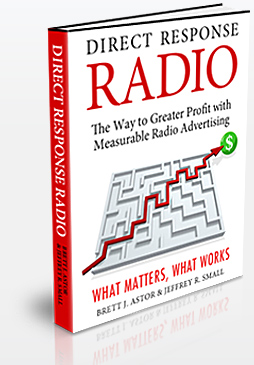“To swear off making mistakes is very easy. All you have to do is swear off having ideas.”
-Leo Burnett
It would be very difficult to overstate the role and importance of testing in building successful direct response radio campaigns. At first, the idea of testing seems simple, even basic. Of course you have to test. You wouldn't just spend $100,000 behind an ad without first testing it.
But in direct response radio, testing runs much deeper than that. It′s in the culture and the neural fibers of direct response organizations because testing almost never ceases. On some level, there is always testing occurring in a campaign. An understanding of the process of testing must therefore be woven throughout each phase of the campaign. Additionally, testing is a sub-function of direct response that requires its own specialized skill set, namely an understanding of basic statistics and familiarity with the scientific method and field research.
We borrow a lot from the scientific method used in behavioral science because we must be able to a) set up a test correctly, b) capture the right data, and c) evaluate that data in a manner that ensures we're making accurate interpretations.
For clarification, the "scientific method" can be summarized as: The principles and empirical processes of discovery and demonstration considered characteristic of or necessary for scientific investigation, generally involving the observation of phenomena, the formulation of a hypothesis concerning the phenomena, experimentation to demonstrate the truth or falseness of the hypothesis, and a conclusion that validates or modifies the hypothesis. 1
Of course, unlike lab settings that most behavioral scientists applying the scientific method work in, direct response radio is more like field research-messy, complicated, and imperfect. Still, the alternative is a chaotic starting over at the beginning of the learning curve for each campaign, and even each ad copy.
Possibly there is no such thing as the scientific method, for "scientific" is a descriptive rather than a definitive term, and therefore applies to many methods. It implies carefulness, and patience, and thoroughness, and in general a very high type of workmanship. It requires both deduction and induction, both analysis and synthesis. -Edmund McGarry 2
Here are five tips for ensuring you receive the most benefit from testing.
1. Identify specifically what question you are trying to answer from a particular round of testing. Always keep the question in mind when making decisions throughout the testing phase. Because there are often many questions to address, it is very easy to lose sight of what you are trying to learn in a single round of testing, so take this very seriously, and do whatever you need to do to remain focused on these questions and ensure that the testing is set up to provide the best answers possible.
1 "scientific method." The American Heritage® Dictionary of the English Language, Fourth Edition. Houghton Mifflin Company, 2004. 28 Sep. 2007.
2 McGarry, Edmund D., (1936) "The Importance of Scientific Method in Advertising," The Journal of Marketing, Vol. 1, No. 2, pp. 82-86.
Order Direct Response Radio Today or Back to Chapter Excerpts



